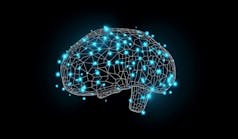New AI model efficiently reaches clinical-expert-level accuracy in complex medical scans
UCLA researchers say they have developed a deep-learning framework that teaches itself quickly to automatically analyze and diagnose MRIs and other 3D medical images – with accuracy matching that of medical specialists in a fraction of the time.
An article describing the work and the system’s capabilities is published in Nature Biomedical Engineering.
The new framework has wide adaptability across a variety of imaging modalities. The developers have studied it with 3D retinal scans (optical coherence tomography) for disease risk biomarkers, ultrasound videos for heart function, 3D MRI scans for liver disease severity assessment, and 3D CT for chest nodule malignancy screening. They say it provides a foundation that could prove valuable in numerous other clinical settings as well, and studies are planned.
The UCLA computer model, called SLIViT, for SLice Integration by Vision Transformer, consists of a unique combination of two artificial intelligence components and a unique learning approach that researchers say allow it to accurately predict disease risk factors from medical scans across multiple volumetric modalities with moderately sized labeled datasets.





